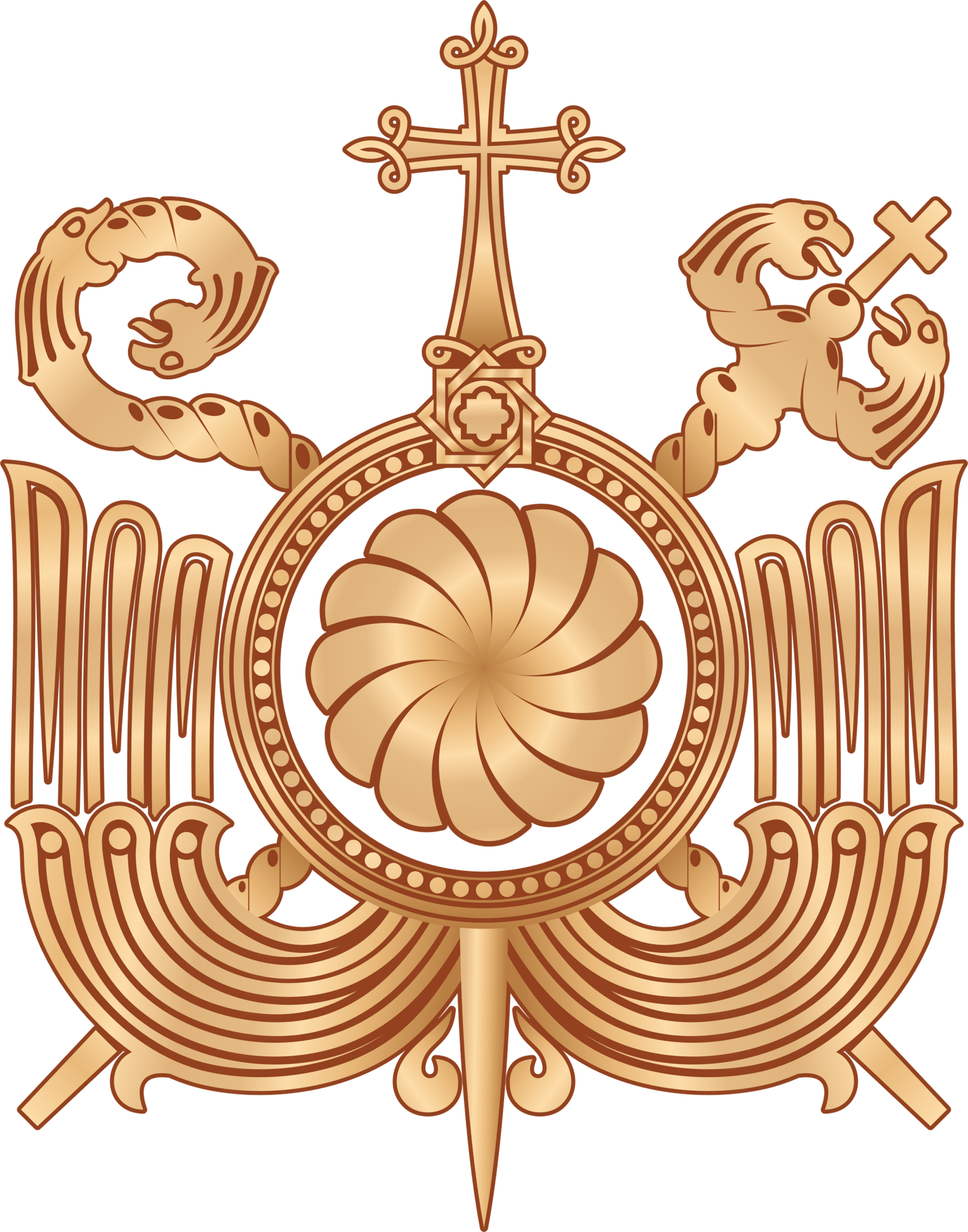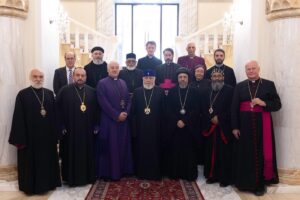"We Have Let You Down and Are Ashamed of It"
Recently, the Catholicos of All Armenians welcomed members of the International Commission of the Anglican and Eastern Orthodox Churches during their visit to Armenia. His Grace Bishop Hovakim Manukyan, Primate of the Armenian Diocese of the United Kingdom and Ireland, introduced the commission’s co-chairs—Archbishop Michael Jackson, Primate of the Anglican Church in Ireland, and Archbishop Angaelos of the Coptic Orthodox Diocese of London—along with other members, providing an overview of the commission's activities.
Accompanied by Bishop Hovakim Manukyan and His Grace Bishop Vrtanes Abrahamyan of the Diocese of Artsakh, the commission members visited families forcibly displaced from Artsakh who are now under the care of the Mother See of Holy Etchmiadzin.
“These families, living amidst deep sorrow and uncertainty, symbolize the unbreakable will of the people of Artsakh and the enduring strength of their faith. During the visit, I told them that the world has not forgotten them, that the issue of Artsakh concerns us all, and that each of us, in spirit and heart, shares their pain and loss as if it were our own,” said Bishop Hovakim in an interview with Hraparak.
Archbishop Michael Jackson, addressing the displaced families, said: "I have not endured suffering like what you have experienced and are still living through. As members of the international community and the global Church, we stand with you today as brothers and sisters. We have let you down and are ashamed of it. During the dark days of Ireland’s struggle for independence, Irish women, men, children, and the disabled were dragged from their homes and taken to unknown places. The fate of the Irish is akin to your own. As the Gospel says, 'The light shines in the darkness, and the darkness has not overcome it.' You, the people of Artsakh, are that light which cannot be extinguished.”
Archbishop Angaelos of the Coptic Orthodox Church expressed his gratitude to the families and emphasized, “Christianity recognizes two types of saints: martyrs and confessors or witnesses. The burden of the latter is heavier because they live while bearing their suffering. But remember, as Christians, our God is stronger than our enemies. While you have lost Artsakh today and are enduring pain and hardship, God gives hope, and that hope helps overcome every challenge you face.”
Srbouhi Hakobyan, who relocated from Artsakh with her family in September 2023, shared her story with the commission members. She explained how Gandzasar Monastery was not only a historical monument but also a symbol of her family’s faith. “Gandzasar was visible from every corner of our village,” she said, describing how the people of Artsakh are deeply tied to their holy sites. Her six-year-old daughter referred to Gandzasar as “Grandpa God,” seeing it as a unique manifestation of divine presence. When they were given only 15 minutes to evacuate, Srbouhi grabbed essential items—documents, baby food—and fled with her children through the forests under heavy shelling. “As we left, I glanced back at Gandzasar for the last time. My daughter, sensing the gravity of the moment, asked, ‘Is God leaving us?’ She meant Gandzasar. I told her, ‘Never, my child,’ and together we prayed one last time near Gandzasar. This memory symbolizes the strength of our faith amid loss and destruction,” Srbouhi recounted.
Bishop Hovakim noted that the meeting was deeply emotional. “Our compatriots from Artsakh shared their hardships endured during the 44-day war, the September attacks, and the blockade of Artsakh. Two children, Tatevik Shirinian and Arpi Aghamanyan, recited poems dedicated to Artsakh, and participants joined in a united prayer for world peace and the return of the people of Artsakh to their homeland. Other displaced individuals living in the shelter shared their tragic stories as well. One mother spoke of losing her eldest son during the 2020 war and her second son to a fuel explosion during their exile. These accounts reminded many of us of the stories told by our grandparents about the martyrs of the Der Zor desert—a tragic history that, unfortunately, has repeated itself,” said Bishop Hovakim.




